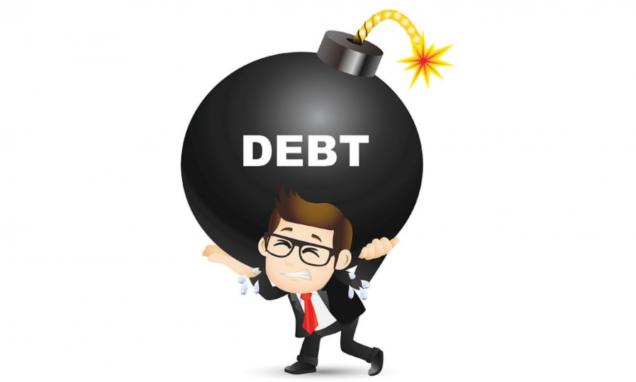
Your Guide - Debt Consolidation into Your Home Loan even with Bad Credit
To consolidate debt into your home loan, can be a powerful tool for managing your finances and achieving greater financial stability. Owning a home is a significant milestone in one’s life, and it comes with numerous financial benefits. One such advantage is the ability to tap into your home’s equity to consolidate high interest debt. This financial strategy, known as . In this article, we’ll explore what debt consolidation with a mortgage entails, its benefits, and important considerations.
Understanding Debt Consolidation with a Home Loan Refinance
Debt consolidation with a mortgage, often referred to as a home equity loan or a cash out refinance, involves using the equity you’ve built up in your home to pay off high-interest debts such as credit card balances, personal loans, or medical bills. Instead of juggling multiple debts with varying interest rates, you consolidate them into a single, more manageable mortgage payment.
Consolidate Debt – Here’s how it works:
Assess Your Equity: Start by determining how much equity you have in your home. Equity is the difference between your home’s current market value and the amount you owe on your mortgage.
Apply for a Home Equity Loan or Cash-Out Refinance: Once you know your equity, you can apply for a home equity loan or refinance your existing mortgage to access the funds.
Pay Off High-Interest Debts: Use the funds from the home equity loan or cash-out refinance to pay off your high-interest debts in full.
Repay the New Mortgage: You’ll now have a new mortgage, which may have different terms and interest rates. Make regular monthly payments as agreed upon with your lender.
Benefits of Debt Consolidation with a Mortgage
Lower Interest Rates: Mortgages typically come with lower interest rates compared to credit cards and personal loans. When you consolidate debt you can significantly reduce the overall interest you pay over time.
Simplified Finances: Managing multiple debts can be challenging. Debt consolidation simplifies your finances by consolidating all your debts into a single monthly payment.
Improved Credit Score: Timely payments on a consolidated mortgage can positively impact your credit score, as it demonstrates responsible financial management.
Important Considerations when doing Debt Consolidation Loans
While consolidating debts with your home loan can be a valuable financial strategy, it’s essential to consider the following factors:
Risk of Losing Your Home: Your home serves as collateral for the new mortgage. Failing to make payments could result in foreclosure, so it’s crucial to manage your finances responsibly.
Costs: There may be closing costs associated with a home equity loan or cash-out refinance.
Longer Repayment Period: Extending the repayment period by consolidating debt into your mortgage can lower your monthly payments but may result in paying more interest over the life of the loan.
Conclusion:
Debt consolidation loans with Bad Credit can be a viable strategy to simplify your finances and reduce interest payments. However, it’s not without risks and costs. Before proceeding, carefully assess your financial situation, goals, and the terms of the consolidation loan. Seeking professional advice is often a prudent step in making the best decision for your financial future. Remember that debt consolidation is just one tool in your financial toolkit, and it should be used thoughtfully and as part of a broader financial strategy
Understanding Debt Consolidation with a Home Loan Refinance
Debt consolidation with a mortgage, often referred to as a home equity loan or a cash out refinance, involves using the equity you’ve built up in your home to pay off high-interest debts such as credit card balances, personal loans, or medical bills. Instead of juggling multiple debts with varying interest rates, you consolidate them into a single, more manageable mortgage payment.
Consolidate Debt – Here’s how it works:
Assess Your Equity: Start by determining how much equity you have in your home. Equity is the difference between your home’s current market value and the amount you owe on your mortgage.
Apply for a Home Equity Loan or Cash-Out Refinance: Once you know your equity, you can apply for a home equity loan or refinance your existing mortgage to access the funds.
Pay Off High-Interest Debts: Use the funds from the home equity loan or cash-out refinance to pay off your high-interest debts in full.
Repay the New Mortgage: You’ll now have a new mortgage, which may have different terms and interest rates. Make regular monthly payments as agreed upon with your lender.
Benefits of Debt Consolidation with a Mortgage
Lower Interest Rates: Mortgages typically come with lower interest rates compared to credit cards and personal loans. When you consolidate debt you can significantly reduce the overall interest you pay over time.
Simplified Finances: Managing multiple debts can be challenging. Debt consolidation simplifies your finances by consolidating all your debts into a single monthly payment.
Improved Credit Score: Timely payments on a consolidated mortgage can positively impact your credit score, as it demonstrates responsible financial management.
Important Considerations when doing Debt Consolidation Loans
While consolidating debts with your home loan can be a valuable financial strategy, it’s essential to consider the following factors:
Risk of Losing Your Home: Your home serves as collateral for the new mortgage. Failing to make payments could result in foreclosure, so it’s crucial to manage your finances responsibly.
Costs: There may be closing costs associated with a home equity loan or cash-out refinance.
Longer Repayment Period: Extending the repayment period by consolidating debt into your mortgage can lower your monthly payments but may result in paying more interest over the life of the loan.
Conclusion:
Debt consolidation loans with Bad Credit can be a viable strategy to simplify your finances and reduce interest payments. However, it’s not without risks and costs. Before proceeding, carefully assess your financial situation, goals, and the terms of the consolidation loan. Seeking professional advice is often a prudent step in making the best decision for your financial future. Remember that debt consolidation is just one tool in your financial toolkit, and it should be used thoughtfully and as part of a broader financial strategy



